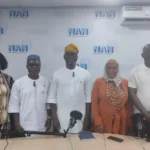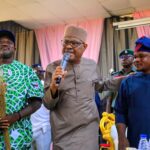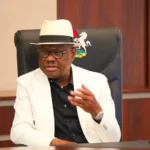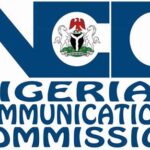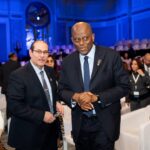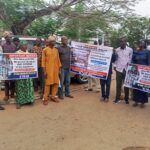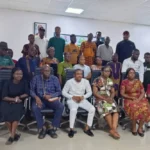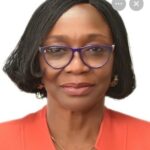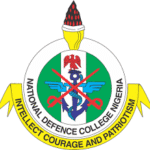By Diana Omueza
The Policy and Legal Advocacy Centre (PLAC) has clarified that the Special Seats Bill currently before the 10th National Assembly is a locally-driven initiative.
Mr Clement Nwankwo, Executive Director of PLAC, said this in Abuja during a stakeholders’ consultation and communiqué strategy meeting on the passage of the special seats bill.
According to him, the bill is owned by Nigeria, without any financial backing or sponsorship from any international partners.
“The special seats bill does not reflect attribution to any country’s efforts or identity. The bill is a Nigerian initiative; it is very important and very sensitive.
“The issue of sovereignty is also very important, and I want to state that the special seats bill is an agenda that is being driven by Nigerians, it is a Nigerian initiative not by non-Nigerians.
“The bill has gone through the 9th Assembly and now it’s in the 10th Assembly. It’s been in the National Assembly for about six to seven years.
“It is a Nigerian agenda, owned by Nigeria and driven by Nigerians without backings or funding from international partners, funders or donors,” he said.
Nwankwo said that he was optimistic that the bill would be passed because of the efforts and contributions made by stakeholders in drafting, engaging and advocating for the passage.
He advised women’s groups to be tactical in their approach and embrace strategies such as lobbying, advocacy and intensifying awareness creation on the bill ahead of the national assembly’s voting process.
“Don’t threaten the lawmakers over the bill. It’s not that we are begging, but we are trying to make them understand, so let’s be very gentle in our words, very persuasive and let’s do measured advocacy,” he said.
Mr Akin Rotimi, Chairman, House Committee on Media and Policy Affairs, said that the 10th National Assembly was committed to the special seats bill and its impact on governance.
He, however, said that stakeholders must not rely on rumours and hearsay on the position of the NASS over the passage of the bill.
“At this stage of the bill, 469 Nigerians, that is 360 House members, and 109 senators will ultimately determine the next phase of this bill.
“Yes, it will go to the state houses of assembly, but even then, decisions will rest largely with legislators at both federal and state levels.
“A lot of our advocacy has framed this agenda as more of a referendum, as though the entire country is going to vote on it, which we need to be careful about and concentrate more,” he said.
Rotimi clarified that only 469 people’s representatives carrying the authority of constituencies would vote, as such public discourse being framed as though it was a national referendum must be addressed.
He advised that the legislative process should be persuasion, evidence-based with sustained enlightenment and engagement with those who would actually cast the votes.
He also urged stakeholders to guide the media on the right advocacy strategy and reportage, as well as the appropriate title of the bill and the use of precision in language to shape the right public perception of the bill.
“The media needs to be properly guided by the advocacy platforms so that the use of the terminology is very consistent and everybody understands.
“Also, advocacy should include systemic issues tracking and intelligent responses to genuine questions such as the cost of governance for additional seats which must be viewed in context,” he said.
Mrs Aisha Ibrahim, President, Nigeria Association of Women Journalists (NAWOJ), said that the special seats bill was more than just a policy instrument, but a moral and political statement to mirror the diversity of Nigerians.
“The world is watching how we define equity, how we uphold representation, and how we translate ideals into actions.
“Our communication strategy must, therefore, be bold, unifying, and visionary; one that captures both the spirit and substance of the special seats bill,” she said.
She urged the 10th NASS to set a powerful example of what collective purpose, thoughtful engagement, and strategic communication could achieve. (NAN) (www.nannews.ng)
Edited by Oluwafunke Ishola

